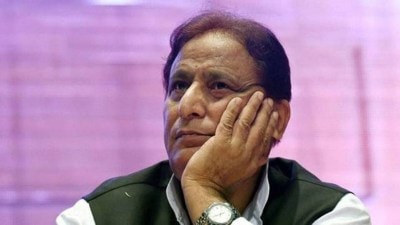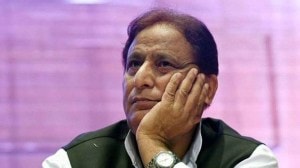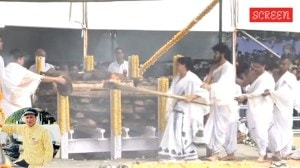Iran, Iraq forge anti-US pact: report
LONDON, February 12: Senior intelligence and security officials from Iran and Iraq have met secretly to forge an alliance in the face of the...

LONDON, February 12: Senior intelligence and security officials from Iran and Iraq have met secretly to forge an alliance in the face of the growing US military build-up in the Gulf, The Times newspaper claimed today.
The London-based daily, citing Western intelligence sources, said Iraqi leader Saddam Hussein had sent his youngest son Qusay to represent him at the clandestine meeting last week. Qusay, who is responsible for security in Iraq, is said to have gone to Al-Shalamja on the Iraqi side of the Iran-Iraq border on February 5, where he met Gorbanali Dorri Najafabadi, the Iranian Intelligence Minister.
Qusay was accompanied by Rafia Daham Al-Takriti, the head of Iraqi general intelligence, according to The Times. The meeting, if confirmed, would provide evidence that the once bitter foes are developing new contacts and putting aside, for the time being, obstacles that have blocked normalisation of ties since their 1980-88 war.
The newspaper said there was no likelihood of any jointmilitary response from Iraq and Iran to US-led military strikes against Baghdad, which Tehran vociferously opposes. But it said both countries had huge intelligence resources, and an agreement to pool them in areas of mutual interest would add a menacing new ingredient to the volatile region.
The newspaper said the meeting followed a visit to Tehran by Iraqi Foreign Minister Mohamed Said Al-Sahhaf in the second half of last month. The result of these meetings, according to The Times, is that there is now believed to be a direct channel of communication between the heads of the Iraqi and Iranian intelligence services.
During his visit, the Iraqi Foreign Minister is understood to have signed a Memorandum of Understanding (MoU) with his Iranian counterpart Kamal Kharrazi, which was approved by Iranian President Mohammed Khatami and the country’s supreme leader Ayatollah Khameini.
The intelligence sources said Iraq appeared to have offered a number of concessions to encourage Iran to join Baghdad indeveloping an anti-US plan of action.
The concessions reportedly included an agreement by Baghdad to reduce its support for Iranian opposition groups operating inside Iraq. In exchange, Tehran is said to have suspended its claim for compensation from Baghdad, for the damage caused by the Iran-Iraq war. In a speech to mark the anniversary of the 1979 Islamic revolution, Iranian President Mohammad Khatami on Thursday condemned the presence of US and British navies in the Gulf.
Khatami, who made overtures to Americans last month, was careful not to name the United States. But he made clear what he thought of the US and British forces poised to strike Iraq if it does not grant unfettered access to UN weapons inspectors. "The foreign presence in the region is the cause of tension, and it is an insult to the nations of the region," Khatami told the massive crowd in central Teheran.
"Iraq may be attacked at any moment. We strongly condemn any act of aggression, but also call on the Iraqi Government to submitto all international regulations and resolutions."
Photos



- 01
- 02
- 03
- 04
- 05




























